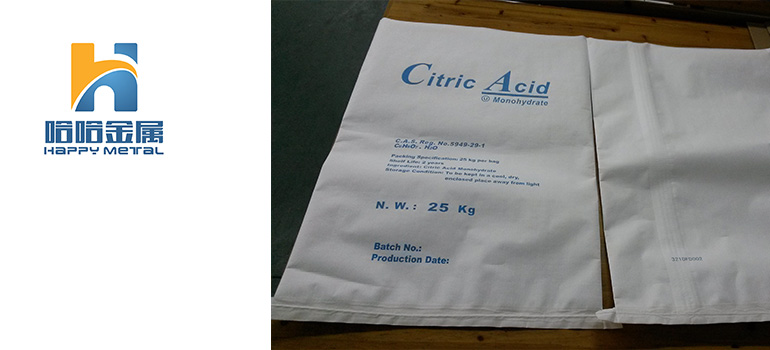Summary:
Everything you need to know about citric acid monohydrate
What is Citric Acid Monohydrate?
Uses of Citric Acid Monohydrate
Advantages and Disadvantages of Citric Acid Monohydrate
If you’re interested in the world of food, pharmaceuticals, cosmetics, or cleaning products, you may have heard of citric acid monohydrate. This versatile organic acid is a popular ingredient that can be found in a wide range of products, from soft drinks and candies to medications and cleaning solutions. But what is citric acid monohydrate, and why is it so widely used?
The following article will cover everything you need to know about this natural and secure product, including its applications, benefits, and possible drawbacks. Whether you’re a professional in one of these industries or simply curious about what goes into the products you use every day, read on to discover the fascinating world of citric acid monohydrate.
Citric acid monohydrate is a type of organic acid that is widely used in various industries due to its versatile properties. It is a white crystalline powder that is often found in citrus fruits and is commonly produced through the fermentation of carbohydrates. In this article, we will explore what citric acid monohydrate is, its uses, and its advantages and disadvantages.
What is Citric Acid Monohydrate?
Citric acid monohydrate is a natural preservative and flavor enhancer that is commonly used in the food and beverage industry. It is a weak acid that is also used in the manufacturing of various products such as detergents, cosmetics, and pharmaceuticals. Citric acid monohydrate is an organic compound that contains one molecule of water, which distinguishes it from other types of citric acid.
Uses of Citric Acid Monohydrate
Food Industry
Citric acid monohydrate is widely used in the food industry due to its sour taste and preservative properties. It is commonly used as a food additive in the form of citric acid salts, such as citrate and citric acid. Citric acid monohydrate is also used as a flavor enhancer in soft drinks, fruit juices, candies, and other sweet treats. Its sour taste can be used to balance the sweetness of other ingredients.
Cosmetic Industry
Because of its exfoliating qualities, citric acid monohydrate is frequently found in a variety of beauty products. It aids in the removal of dead epidermis cells and the development of new ones. It is frequently found in cleansers, toners, and treatments for the face. Citric acid monohydrate is also used in cosmetic goods as a pH adjuster to help keep correct pH equilibrium.
Pharmaceutical Industry
Citric acid monohydrate is a frequently used component in the production of effervescent tablets in the pharmacy business. When these pills dissolve in water, carbon dioxide is released, which can help reduce indigestion and reflux symptoms. Citric acid monohydrate is also used in a variety of medicines as a stabiliser and chelating substance.
Advantages and Disadvantages of Citric Acid Monohydrate
Advantages
One of the main advantages of citric acid monohydrate is its safety. It is considered a safe food additive by regulatory agencies such as the US Food and Drug Administration (FDA) and the European Food Safety Authority (EFSA). Citric acid monohydrate is also eco-friendly and biodegradable, making it a sustainable choice for many industries.
Another advantage of citric acid monohydrate is its versatility. It has a wide range of applications in various industries, including food and beverage, cosmetic, and pharmaceutical. Citric acid monohydrate is also an effective preservative that can help to extend the shelf life of food products.
Disadvantages
One of the main disadvantages of citric acid monohydrate is that it can cause irritation to the skin and eyes in its concentrated form. It should be handled with care and kept out of reach of children. Citric acid monohydrate can also contribute to dental erosion if consumed in excessive amounts.
In conclusion, citric acid monohydrate is a versatile and widely used organic acid that has many applications in various industries. It is a natural preservative and flavor enhancer that is commonly found in many food and beverage products. Citric acid monohydrate is also used in the cosmetic and pharmaceutical industries due to its exfoliating properties and pH adjusting capabilities. While it has many advantages, it should be handled with care due to its potential for skin and eye irritation and dental erosion if consumed in excessive amounts. Despite these disadvantages, citric acid monohydrate is considered safe and eco-friendly, making it a sustainable choice for many industries.




